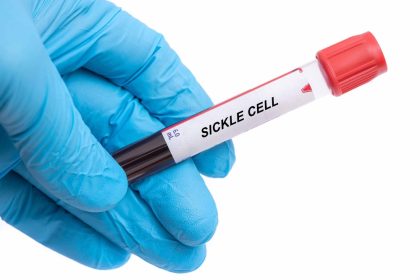Hormonal Fundamentals
Biological Mechanism Insights
Testosterone, a hormone commonly associated with male reproductive health, plays a critical role in women’s physiological systems. It is produced in the ovaries and adrenal glands and has wide-reaching effects on various biological processes. This essential hormone influences metabolic regulation, reproductive health, and overall physiological function in women, underscoring its significance far beyond traditional understanding.
Key hormonal characteristics:
- Naturally produced in ovaries and adrenal glands: Itis produced by these organs in women, playing a critical role in a variety of metabolic and reproductive processes.
- Essential metabolic regulator: It is vital for regulating energy balance, influencing muscle mass, fat distribution, and overall metabolic health.
- Critical reproductive health marker: It affects ovulation and sexual function, contributing to overall reproductive health and fertility.
- Multisystem physiological influencer: It has effects on multiple systems, including bone health, cardiovascular health, and mental well-being.
- Dynamic hormonal contributor: It interacts with other hormones, influencing their levels and activity within the body.
- Precision cellular communication agent: It plays a key role in cellular function and communication, impacting tissue growth, repair, and overall system coordination.
Scientific Perspective
Contemporary research highlights the complex and far-reaching role of testosterone in women’s health, challenging traditional views that focus primarily on its role in male health. The evolving scientific landscape indicates that it is essential not only for reproductive health but also for overall well-being, influencing numerous physiological processes.
Emerging research dimensions:
- Advanced molecular interaction studies: Research is increasingly focusing on understanding the molecular mechanisms through which testosterone interacts with other hormones and cellular components to affect women’s health.
- Comprehensive physiological mapping: Studies are mapping the various physiological effects of testosterone, including its impact on metabolism, mood, energy, and reproductive function.
- Intricate metabolic regulations: Testosterone is involved in the regulation of metabolic processes such as glucose and fat metabolism, influencing body composition and energy balance.
- Holistic health perspectives: Modern research emphasizes a broader understanding of testosterone’s role, including its effects on mental health, immune function, and aging.
- Personalized treatment approaches: There is growing interest in tailoring testosterone therapy to meet the individual needs of women, considering factors like age, lifestyle, and underlying health conditions.
- Genetic expression analysis: Research into how testosterone affects gene expression is shedding light on how it influences cellular functions and overall health.
- Neurological system interactions: Testosterone’s impact on brain function is being examined, including its role in cognition, mood regulation, and mental clarity.
Symptom Management
Women experiencing hormonal imbalances may benefit from testosterone therapy. By addressing these imbalances, testosterone therapy can have a significant impact on a variety of symptoms that influence overall health and well-being.
Observed therapeutic dimensions:
- Enhanced libido restoration: Testosterone therapy can improve sexual desire and satisfaction, addressing concerns related to libido that may arise with hormonal fluctuations.
- Energy level optimization: Adequate levels of testosterone are associated with improved energy and vitality, reducing feelings of fatigue and low stamina.
- Cognitive function support: Testosterone may contribute to better cognitive performance, helping with focus, memory, and clarity.
- Emotional balance improvement: It can help stabilize mood and reduce symptoms of anxiety and depression, contributing to emotional well-being.
- Metabolic system regulation: Testosterone supports metabolic processes that help manage body weight, muscle mass, and fat distribution.
- Muscle mass maintenance: As women age, maintaining muscle mass can become more difficult. Testosterone plays a role in preserving muscle tissue and strength.
- Bone density preservation: Testosterone is important for maintaining bone health, reducing the risk of osteoporosis and fractures.
Clinical Considerations
For women considering testosterone therapy, a comprehensive medical assessment is essential to determine the most appropriate course of action. This involves understanding the complexities of their hormonal health and creating personalized treatment plans.
Critical assessment parameters:
- Comprehensive hormonal screening: Hormone levels should be thoroughly assessed to understand the broader picture of a woman’s health and any imbalances that may exist.
- Individual health history analysis: A woman’s medical and family history will inform treatment options and identify potential risk factors for certain conditions.
- Metabolic function evaluation: This ensures that any underlying metabolic disorders, such as insulin resistance or thyroid dysfunction, are taken into account when developing a treatment plan.
- Potential risk factor identification: Factors such as age, pre-existing conditions, and lifestyle should be evaluated to minimize risks associated with testosterone therapy.
- Personalized treatment planning: Each woman’s therapy should be tailored to her specific needs, including dosage, delivery method, and duration of treatment.
- Longitudinal health tracking: Ongoing monitoring of health and hormone levels ensures that the therapy is effective and adjusts as necessary.
- Precision diagnostic techniques: Accurate diagnostics ensure that testosterone therapy is appropriately prescribed and that any potential issues are detected early.
Access and Challenges
Despite its benefits, women seeking therapy face several challenges in accessing care. These barriers range from lack of education and understanding among healthcare providers to financial and logistical limitations.
Identified healthcare challenges:
- Limited medical professional training: Many healthcare professionals are not well-versed in the hormonal needs of women, which can limit access to effective treatment.
- Financial access restrictions: The cost of therapy can be prohibitive for some women, limiting access to the benefits of treatment.
- Insufficient research documentation: There is a need for more robust clinical trials to validate the effectiveness of therapy for women.
- Complex prescription protocols: The administration of testosterone requires careful monitoring, and the complexity of dosing and delivery methods can be a barrier to some women.
- Individualized treatment complexity: Hormonal therapy must be tailored to each individual, which requires careful management and ongoing adjustments.
- Societal misconceptions: There is often a lack of awareness about women’s hormonal health, leading to misperceptions about the benefits of therapy.
- Regulatory limitations: In some areas, access to therapy is limited due to regulatory restrictions on hormone treatments for women.
Holistic Wellness Approach
Testosterone therapy is most effective when it is part of a comprehensive, holistic health strategy. Addressing lifestyle factors such as diet, stress management, and physical activity is essential for achieving optimal outcomes.
Comprehensive wellness strategies:
- Nutritional system support: A balanced, nutrient-dense diet supports overall hormonal health and can enhance the effects of testosterone therapy.
- Stress management techniques: Managing stress through relaxation practices like meditation or yoga can prevent stress-related hormonal imbalances.
- Sleep quality optimization: Adequate sleep is essential for maintaining hormonal balance and improving overall health.
- Lifestyle modification: Incorporating healthy habits such as regular exercise and a balanced diet can enhance the benefits of testosterone therapy.
- Integrated medical collaboration: A holistic approach to health should involve collaboration between different healthcare providers, including endocrinologists, nutritionists, and mental health professionals.
- Mindfulness practices: Mindfulness practices can improve emotional regulation and overall well-being, which is crucial for balancing hormones.
- Comprehensive preventive care: Preventive care, including regular check-ups and screenings, ensures that hormone imbalances and other health issues are addressed early.
Future Research Trajectories
Scientific investigations into testosterone’s role in women’s health continue to evolve, offering exciting possibilities for more effective, personalized treatments. The focus of future research is on refining our understanding of testosterone’s molecular mechanisms, its long-term effects on women’s health, and developing targeted treatments that can be tailored to individual needs.
Research focus areas:
- Advanced molecular mechanism studies: Future research will continue to explore the molecular mechanisms behind testosterone’s actions in the body.
- Long-term health trajectory analysis: Long-term studies will track the effects of testosterone therapy on women’s health over time.
- Personalized intervention development: Research will lead to more personalized approaches to testosterone therapy based on individual health needs.
- Comprehensive physiological mapping: Studies will focus on mapping the broader physiological effects of testosterone, enhancing understanding of its role in overall wellness.
- Precision treatment protocols: As research advances, protocols for testosterone therapy will become more precise, ensuring optimal outcomes for women.
- Interdisciplinary research collaborations: Collaboration between different scientific disciplines will lead to a more holistic understanding of hormonal health.
- Advanced genetic interaction studies: Research into how testosterone interacts with genetic expression will open new doors for personalized treatments.
Lifestyle Considerations
In addition to medical treatments, women can take proactive steps to support their hormonal balance. Strategic lifestyle interventions, such as regular exercise, a balanced diet, and stress management, play a vital role in promoting overall wellness and improving the effectiveness of testosterone therapy.
Recommended interventions:
- Regular medical consultations: Regular visits to healthcare professionals ensure that any hormonal imbalances are detected and addressed early.
- Comprehensive nutritional planning: A healthy, well-rounded diet supports hormonal health and complements testosterone therapy.
- Consistent physical activity: Exercise helps regulate hormones and supports overall well-being, enhancing the benefits of therapy.
- Stress reduction techniques: Practices such as deep breathing, meditation, and yoga can help reduce stress and balance hormones.
- Holistic wellness commitment: A commitment to overall well-being that incorporates mental, physical, and emotional health is essential for maintaining hormonal balance.
- Continuous health education: Staying informed about hormonal health allows women to make empowered decisions about their care.
- Personalized wellness tracking: Keeping track of health indicators, including hormone levels, energy, mood, and physical health, helps optimize wellness strategies.
Conclusion
The evolving understanding of testosterone’s role in women’s health represents a critical frontier of medical science. Continued research, patient advocacy, and sophisticated medical approaches promise increasingly personalized and effective hormonal health strategies.
As medical science progresses, the potential for targeted, individualized hormonal interventions continues to expand, offering women unprecedented opportunities for comprehensive health optimization and improved quality of life.











